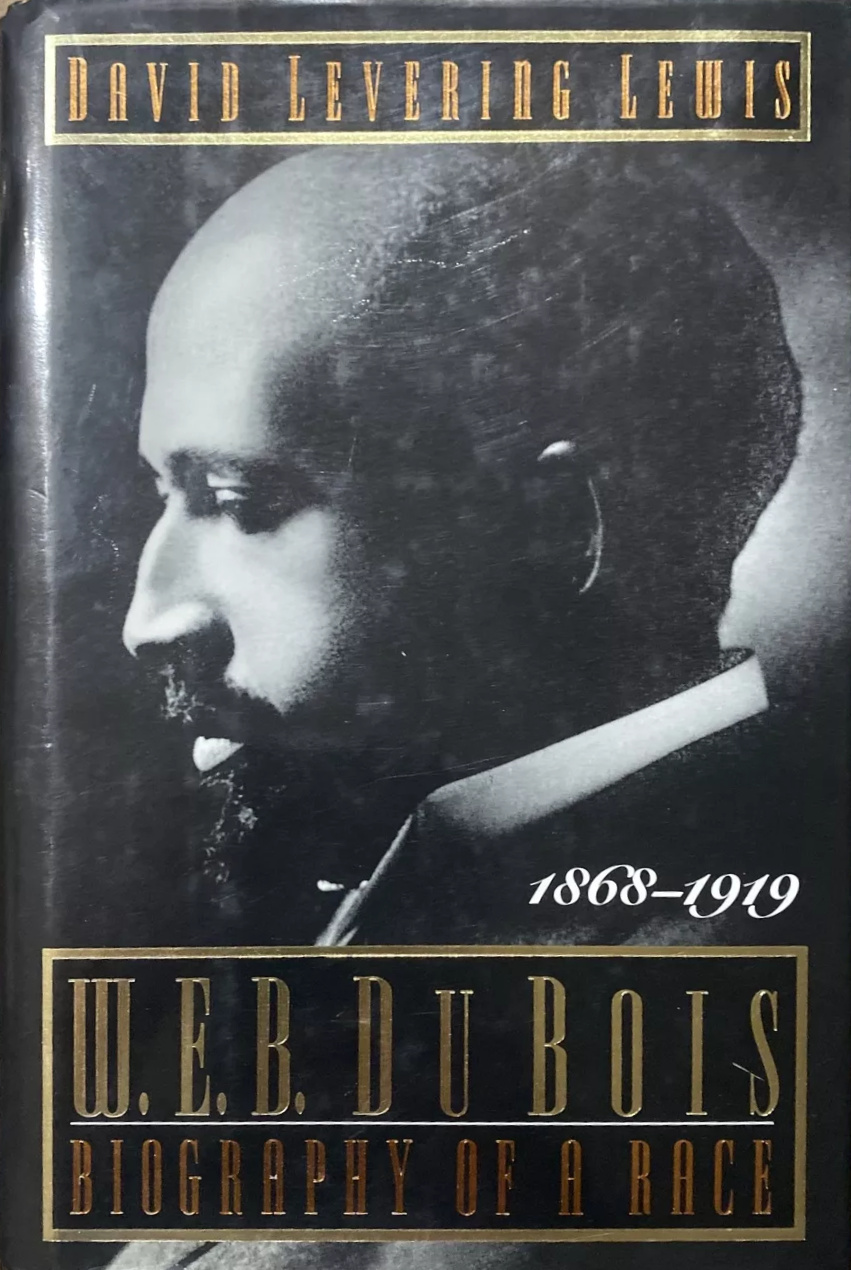Hardcover, 735 pages
English language
Published 1993 by Henry Holt.

Hardcover, 735 pages
English language
Published 1993 by Henry Holt.
The hypnotic Old Testament voice of W.E.B. Du Bois thunders out of David Levering Lewis's monumental biography like a locomotive under full steam:
We claim for ourselves every single right that belongs to a freeborn American—political, civil, social; and until we get these rights we will never cease to protest and assail the ears of America. The battle we wage is not for ourselves for all true Americans.
Premier architect of the civil rights movement in the United States, W.E.B. Du Bois was a towering and controversial personality — a fiercely proud individual blessed with the language of the poet and the impatience of the agitator.
Eight years in the researching and writing, this compelling, lucid, and subtle portrait treats the early and middle phases of a long and intense career — a crucial fifty-year period that demonstrates how Du Bois changed forever the way Americans think about themselves.
William …
The hypnotic Old Testament voice of W.E.B. Du Bois thunders out of David Levering Lewis's monumental biography like a locomotive under full steam:
We claim for ourselves every single right that belongs to a freeborn American—political, civil, social; and until we get these rights we will never cease to protest and assail the ears of America. The battle we wage is not for ourselves for all true Americans.
Premier architect of the civil rights movement in the United States, W.E.B. Du Bois was a towering and controversial personality — a fiercely proud individual blessed with the language of the poet and the impatience of the agitator.
Eight years in the researching and writing, this compelling, lucid, and subtle portrait treats the early and middle phases of a long and intense career — a crucial fifty-year period that demonstrates how Du Bois changed forever the way Americans think about themselves.
William Edward Burghardt Du Bois was born in Great Barrington, Massachusetts, in 1868, three years after slavery was outlawed; he died ninety-five years later on the eve of the historic civil rights March On Washington. Du Bois's years as exemplar for an entire race are chronicled here in vivid detail: his childhood in "the hills of New England" (a period that assumed mythic proportions in his later writings); his studies at Fisk, where he entered the African-American world, and at Harvard under William James and George Santayana (he would return to Harvard to become the first African-American to win a doctorate there), and at the University of Berlin; the rise of the Talented Tenth and the establishment of the NAACP; the Niagara Movement for civil rights; the mounting tension between Du Bois and the great accommodator Booker T. Washington; his sparring with Carnegie and Rockefeller and rejection of their educational agenda for black America; the success of his pioneering and provocative books, especially The Souls of Black Folk; the founding and editing of the fiery and galvanizing journal The Crisis, from whose heated pages scholarship and majestic indignation thundered and flashed across the land for a quarter century; the leadership of the Pan-African movement; World War I, and the brutal treatment of African-American veterans that followed.
David Levering Lewis offers a magisterial and brilliantly rendered portrait of the man who, beyond all others, "grasp[ed] the implications of the struggle for racial justice, memorably proclaiming, at the dawn of the century, that the problem of the twentieth century would be the problem of the color line."